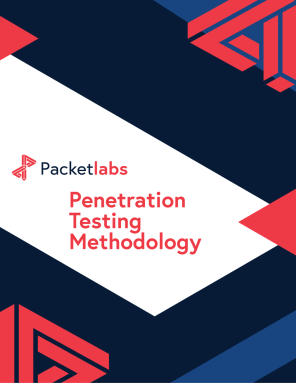Services Social Engineering
The price of the average successful social engineering attack reached $4.1 million in 2022, with that number only growing in 2024 and beyond.
Through Social Engineering, proactively pinpoint your organization’s most vulnerable attack vectors, bolster cross-team awareness of common (and uncommon) threats, and save millions of dollars in financial, reputational, and operational losses.
With social engineering attacks taking, on average, 270 days to identify and contain, a multifaceted approach has never been more crucial. Introducing Packetlabs Social Engineering–divided into six core competencies for maximum flexibility and remediation recommendations.
Contact Us
Find Risks Before They Become Threats
Through Social Engineering, proactively pinpoint your organization’s most vulnerable attack vectors, bolster cross-team awareness of common (and uncommon) threats, and save millions of dollars in financial, reputational, and operational losses.
With social engineering attacks taking, on average, 270 days to identify and contain, a multifaceted approach has never been more crucial. Introducing Packetlabs Social Engineering–divided into six core competencies for maximum flexibility and remediation recommendations.
Service Highlights
Leverage Six Core Competencies
Packetlabs’ Social Engineering engagements are comprised of: Phishing (Allowlisted); Spear-Phishing (Non-allowlisted); Vishing; Smishing: Physical Access (Tailgating): and USB Drops. Most commonly, Packetlabs conducts a Phishing for Compromise campaign to gain unauthorized access to externally exposed gateways and applications. This includes any SaaS used by the organization, such as email and cloud providers, password managers, and code repositories. The goal of this engagement is to answer the ‘so what’ for when credentials or access is obtained.

The Packetlabs Commitment

Tailored Approach
DevSecOps works to improve the overall security of software. It is hailed as a “tactical trifecta” that interlinks three disciplines: development, security, and operations.
Our best-in-class methodologies dig deeper to deliver more findings and more identified business impacts.
Benefit From CREST-Certified Expertise
As a CREST and SOC 2 Type II accredited penetration testing firm, Packetlabs’ 95% manual pentesting goes beyond industry standards. Our best-in-class methodology digs deeper into your organization’s existing detection and response cycle to deliver more actionable, high-impact findings.
In-Depth Methodologies
Our Penetration Testing methodology is derived from the SANS Pentest Methodology, the MITRE ATT&CK framework for enterprises, and NIST SP800-115 to ensure compliance with the majority of regulatory requirements. This methodology is comprehensive and has been broken up based on which areas can be tested with automation and those which require extensive manual testing.
Emphasis on Cross-Team Learning
82% of social engineering-related data breaches contain a human element, making the outcome of Social Engineering exercises critical for Employee Awareness Training, cybersecurity roadmaps for stakeholders, regulatory compliance, and, above all, a security posture strong enough to fend off increasingly sophisticated attacks.
Resources

Penetration Testing Methodology
Our Penetration Security Testing methodology is derived from the SANS Pentest Methodology, the MITRE ATT&CK framework, and the NIST SP800-115 to uncover security gaps.
Download Methodology









